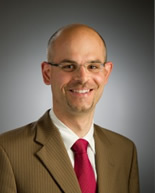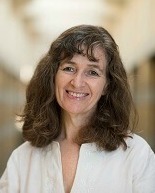 Prof. Tobias Boes
Prof. Tobias Boes
Notre Dame’s rapidly growing sustainability program attracts more students every year. This increasing demand leads faculty from diverse disciplines to brainstorm courses that connect their studies to sustainability. The sustainability program’s new course development grants help professors take these ideas from potential to reality. Dr. Rachel Novick, director of the minor in sustainability, says that professors are interested in these issues. “However, it requires extra work to retool and get into an unfamiliar area rather than sticking to tried and true course topics,” Novick explains. The eight grants awarded this semester will help professors face these challenges.
The grant recipients span across departments, including History, German and Russian, Philosophy, Psychology, and Political Science and most classes will be cross-listed with Sustainability. The grants allow professors to think creatively when planning their new course, looking beyond book requirements to explore options for guest lecturers and class field trips. Dr. Maria McKenna’s new course will be a USEM, prepared for 14 freshmen to examine the intersection between environmental justice and education, while Dr. Susanne Wengle’s course on sustainable agriculture will be designed for seniors. Most of the other new classes fall somewhere in between, offering opportunities for students of all years to choose a topic of interest and explore its connections to sustainability.
Dr. Tobias Boes has watched sustainability become increasingly prevalent in Germany over in recent years. The German and Russian Department has integrated a sustainability unit into its language courses and offers “The Economics of Green Germany” during its Berlin summer program. By partnering with the sustainability and energy studies minors Dr. Boes is excited to reach students from other majors who may not think much about Germany. “The main goal of the semester will be to convince students who are majoring in the sciences and in engineering that sustainability and energy studies have a cultural dimension as well - that you can’t bring about meaningful social change without taking seriously ingrained cultural habits and by studying their history.” Dr. Boes is also keen to learn from his students from other disciplines, hearing what they are looking for in his interdisciplinary course focusing on sustainable Germany from the late eighteenth century to today.
 Prof. Ruth Abbey
Prof. Ruth Abbey
Political theory classes, focused on examining the underlying structures and assumptions that guide our daily lives, provide a unique platform for diving into sustainability. Dr. Ruth Abbey is excited to teach a political theory class about animal ethics, discussing human treatment of other animals and facing some painful realities and potential solutions. While she’s published some papers on the topic Dr. Abbey is eager to improve her own knowledge while exploring this topic with students. “Thinking hard, turning issues over, seeing them from multiple angles, and asking fundamental ethical questions, are a great preparation for any career,” Dr. Abbey says.
The course development grants allow professors to delight in interdisciplinary work despite its daunting aspects. “I have been wanting to teach a course like this for some years now but the course development grant gave me a push,” Dr. Abbey explains. As more professors react to this push, in turn attracting more students, there’s promise of an increase in dynamic conversations, robust learning and promising innovations across the University.